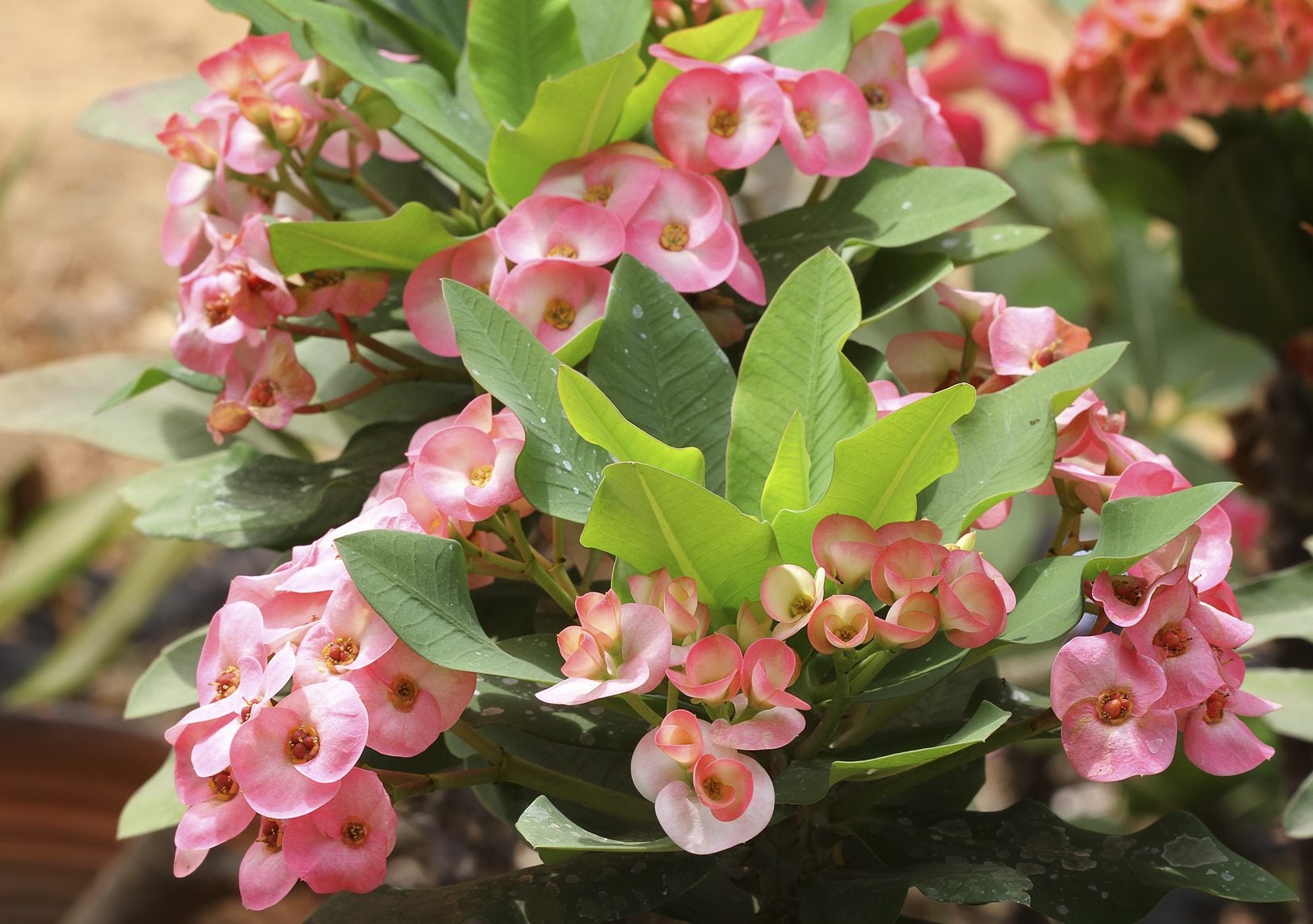Crown Of Thorns Plant Propagation – How To Propagate Crown Of Thorns


Euphorbia, or spurge, is a large family of plants. crown of thorns is one of the better known of these, and a standout specimen. Crown of thorns plant propagation is generally through cuttings, which is a fast method of establishing the plant. Do crown of thorns have seeds? They can produce seed if they bloom, but germination is fickle and it is much easier to establish plants from cuttings. Below is a guide on how to propagate crown of thorns in your home.
Taking Crown of Thorn Cuttings
Crown of thorns is native to Madagascar and was introduced to the United States as a novel houseplant. As long as they get a period of dry and a period of wet, these plants can flower all year around. Their stems and leaves contain a latex sap that some growers might be sensitive to, so it is a good idea to wear gloves when taking crown of thorn cuttings.
The best time for cuttings is spring and summer when the plant is actively growing. Use a very sharp knife or razor blade that is clean to prevent excess damage and disease passage to the parent plant. Cut straight across the tip of a leaf, taking a cutting 3 to 4 inches (7.5 cm.) long. Spray cold water on the parent's cut end to prevent latex sap from leaking.
The next step is important to propagating crown of thorns through cuttings. Lay the cuttings on newspaper in a cool, dry place and allow the cut end to callus. This promotes cells that can turn into roots and helps prevent rot when you insert the cutting into soil. It usually takes a couple of days and the end will appear puckered and grayish white.
How to Propagate Crown of Thorns Cuttings
Propagating crown of thorns with cuttings is much easier than seed. Seed can take months to germinate and may not do so at all if conditions aren't just perfect. Cuttings need a good medium of equal parts peat and sand that has been previously moistened.
Set several cuttings in to a 4 to 5 inch (10-12.5 cm.) pot for a quicker, fuller effect. Insert the callused end into the medium and bury so the cutting is just standing up. Keep the medium lightly moist, but avoid too much water and do not use a saucer or allow standing water. Rooting can take 12 to 14 weeks, but plants often flower shortly after that period.
Crown of Thorns Plant Propagation from Seed
Do crown of thorns have seed? Well, of course, they do, but Euphorbia seeds are only viable a short time and must be sown immediately. You can encourage your plant to produce seed by pollinating it by hand.
Sign up for the Gardening Know How newsletter today and receive a free copy of our e-book "How to Grow Delicious Tomatoes".
Use a fine paintbrush and transfer pollen from one flower to another. Once you see the developed fruiting capsule, allow it to ripen and then remove it and split it open over a piece of paper to collect seed. Use the same medium in which you would to root cuttings, but in flats. Sow the seed on the surface of the soil and cover lightly with sand.
Keep the flat lightly moist with a clear lid or plastic over it and place on a heated pad in bright light. Once you see baby plants, remove the lid and mist the soil to keep just the surface wet. Transplant babies when you see a pair of true leaves.

Bonnie Grant is a professional landscaper with a Certification in Urban Gardening. She has been gardening and writing for 15 years. A former professional chef, she has a passion for edible landscaping.